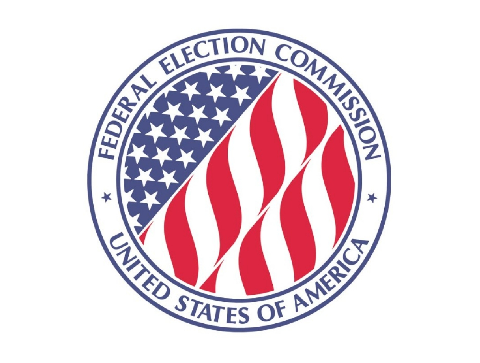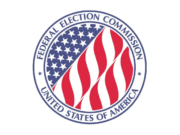On July 10th, the Institute for Free Speech submitted comments to the Federal Election Commission in support of Agenda Document 23-13-A that would make changes to the FEC’s processes in regard to litigation.
Read a PDF of the comments here.
July 10, 2023
Federal Election Commission
1050 First Street, N.E.
Washington, D.C. 20463
RE: Agency Procedure Regarding Litigation Brought Pursuant to 52 U.S.C. §30109(a)(8)
Dear Commissioners:
The Institute for Free Speech[1] submits this comment in support of Agenda Document 23-13-A. While this proposed procedure is not perfect, it would go a long way to ensuring that judicial process is accorded appropriate respect and that federal courts are not forced to make decisions in the dark. The Institute strongly supports these needed reforms.
I. Discussion
Over the past few years, there has been a marked increase in instances where the FEC has declined to appear in court to defend its actions (or inactions) when challenged under the Federal Election Campaign Act’s (the “Act”) citizen suit provisions.
This creates a number of practical problems for complainants turned plaintiffs, respondents, and the courts, particularly in cases where plaintiffs are challenging the FEC’s apparent failure to act in a timely manner.
For example, under the Act, ongoing enforcement actions are generally confidential. Unless the FEC appears to defend itself in court, complainants and respondents have no way of knowing if the Commission has already considered a matter in closed session or if it has already taken a vote that failed to find reason to believe a violation occurred. As Judge Rao of the Court of Appeals for the District of Columbia explained, when the Commission fails to appear in court, “[t]he district courts have understandably assumed Commission votes ‘are publicly announced,’ finding ‘no reason’ to think ‘a vote should have been publicly reported . . . was not” and “entered default judgments and allowed citizen suits to proceed even though (unbeknownst to the court)” the Commission had already voted on the matter. Citizens for Responsibility and Ethics in Washington v. Federal Election Commission, 55 F.4th 918, 921 (D.C. Cir. 2022) (Rao, J., concurring in the denial of rehearing en banc) (quoting Campaign Legal Center v. Federal Election Commission, Case No. 20-0809, 2022 WL 2111542, at * 3 (D.D.C. Apr. 21, 2022)).
The status quo described by Judge Rao is unfair to the court, it is unfair to the respondent, and it is unfair to the plaintiff. It takes up extra time on the court’s docket and forces the parties to spend additional time and money litigating over issues that would be quickly resolved if the facts were known.
The agency procedure proposed in Agenda Document 23-13-A goes a long way to fixing these problems by aligning agency practice with the courts’ “understandable assumption” that courts would be informed of material developments in a case.
It would be better if the agency appeared in court and advanced arguments defending its actions or inactions. In the absence of such a fulsome defense, the least the FEC can do is not actively hide material information that only it possesses from the courts in ongoing litigation.
Two changes the Commission can make improve the proposed policy are providing copies of final contemporaneous statements by Commissions explaining their votes in any vote certification filed with the court and providing certified lists of the contents of the administrative record in cases challenging an agency dismissal.
The first change would address a concern identified by Judge Rao: situations where the Commission has “lacked four votes to proceed and the controlling commissioners have relied on prosecutorial discretion,” yet the Commission did not make the views of the controlling commissioners public. Citizens for Ethics and Responsibility in Washington¸ 55 F.4th at 921 (Rao, J., concurring in the denial of rehearing en banc). Providing final Commissioner statements would rectify this problem, providing courts with insight into whether the Commission is still actively considering a matter or whether a controlling block of Commissioners has reached a final decision not to move forward with one or more respondents.
The second change is to authorize the Commission’s Office of the General Counsel to file a certified list of the contents of the administrative record in any case challenging the dismissal of a complaint in which the Commission does not intend to appear to defend itself. In the District Court for the District of Columbia, agencies typically file a certified list of the contents of the administrative record within 30 days of the filing of an Answer or simultaneously with the filing of a dispositive motion. See Local Rule of Civil Procedure 7(n), Rules of the United States District Court for the District of Columbia. Most, if not all, of the documents comprising the administrative record are made public as a matter of course after the Commission votes to “close the file.” Providing the court with a certified list of the contents of the administrative record is thus properly considered a ministerial task that will help prevent confusion about the relevant record in the district court.
II. Conclusion
While the proposal in Agenda Document 23-13-A is not perfect, if adopted it would be a dramatic improvement over the status quo. Therefore, the Institute applauds the Commission for considering these changes and encourages the Commission to adopt this procedure as soon as possible.
Thank you very much for your time and consideration of our views.
Sincerely,
Bradley A. Smith, Chairman Gary M. Lawkowski, Senior Fellow
[1] The Institute for Free Speech is a nonpartisan, nonprofit 501(c)(3) organization that promotes and defends the First Amendment rights to freely speak, assemble, publish, and petition the government.














